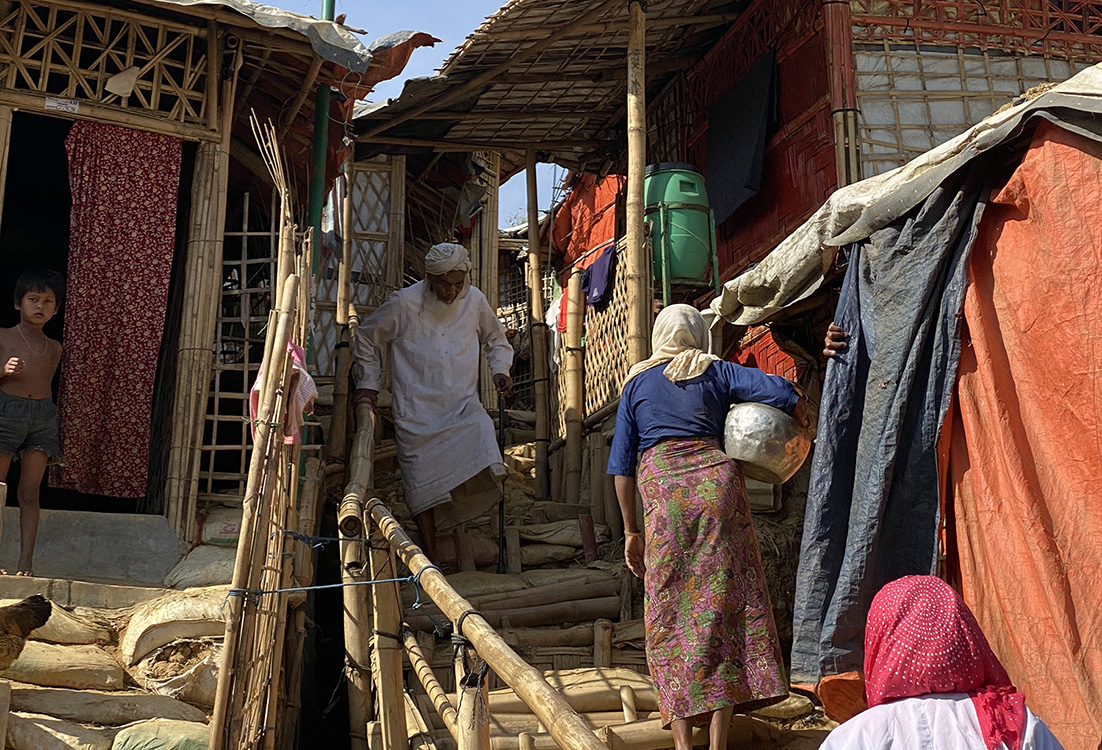
The Rohingya refugees in Bangladesh are experiencing one of the worst humanitarian crises in history. Since august 2017, almost 671500 Rohingya have entered Bangladesh following the Myanmar military attacks. The estimated total affected population including already existing refugees, new arrivals, and host community is 1.2 million people. Many of the Rohingya in the refugee camps are malnourished and suffer from poor mental health due to trauma from violence experienced during the exodus from Myanmar and living conditions in the camps. In addition, diabetes and hypertension is prevailent and for most parts undiscovered and hence untreated in the camps. Idenfiying refugees with diabetes and hypertension is especially important during the Covid-19 crisis as these conditions makes people especially vunerable to the virus. The purpose of the proposed project is to support the Rohingya community in the refugee camps by increasing their access to healthcare. The partners in the project are the IT University of Copenhagen (ITU) and Friendship (an NGO) funded by the Novo Nordisk Foundation. At present, Friendship provides healthcare services to the Rohingya through a network of clinics staffed by primarily paramedics. Key to these paramedics work is a mHealth application orginally made by Friendship which helps them register patients, perform diagnosis, suggest treatment, and handle referrals. The IT University of Copenhagen lends its expertise to support and expand these mHealth initiatives in close collaboration with Friendship. The central activities of the project includes (1) development of two new mHealth modules on diabetes and hypertension, (2) continuation of service delivery with nutrition and mental health modules already developed by the partners in a previous project, (4) inclusion of host community, and (5) final assessment of the project.
Project runs until October 2021
